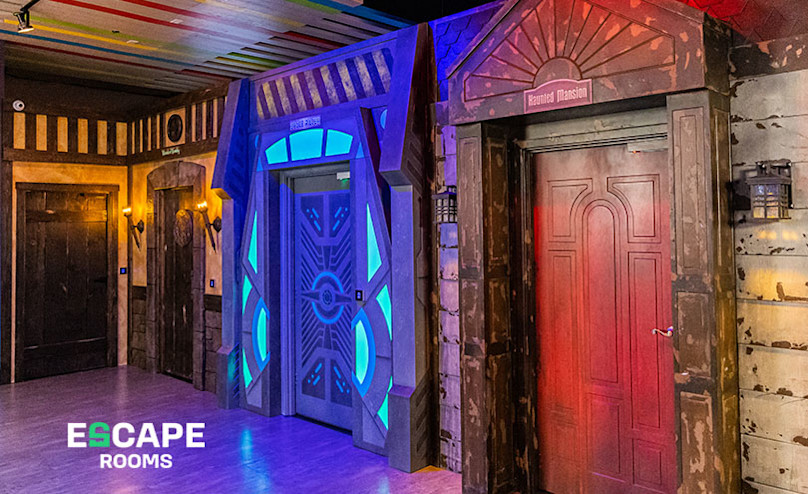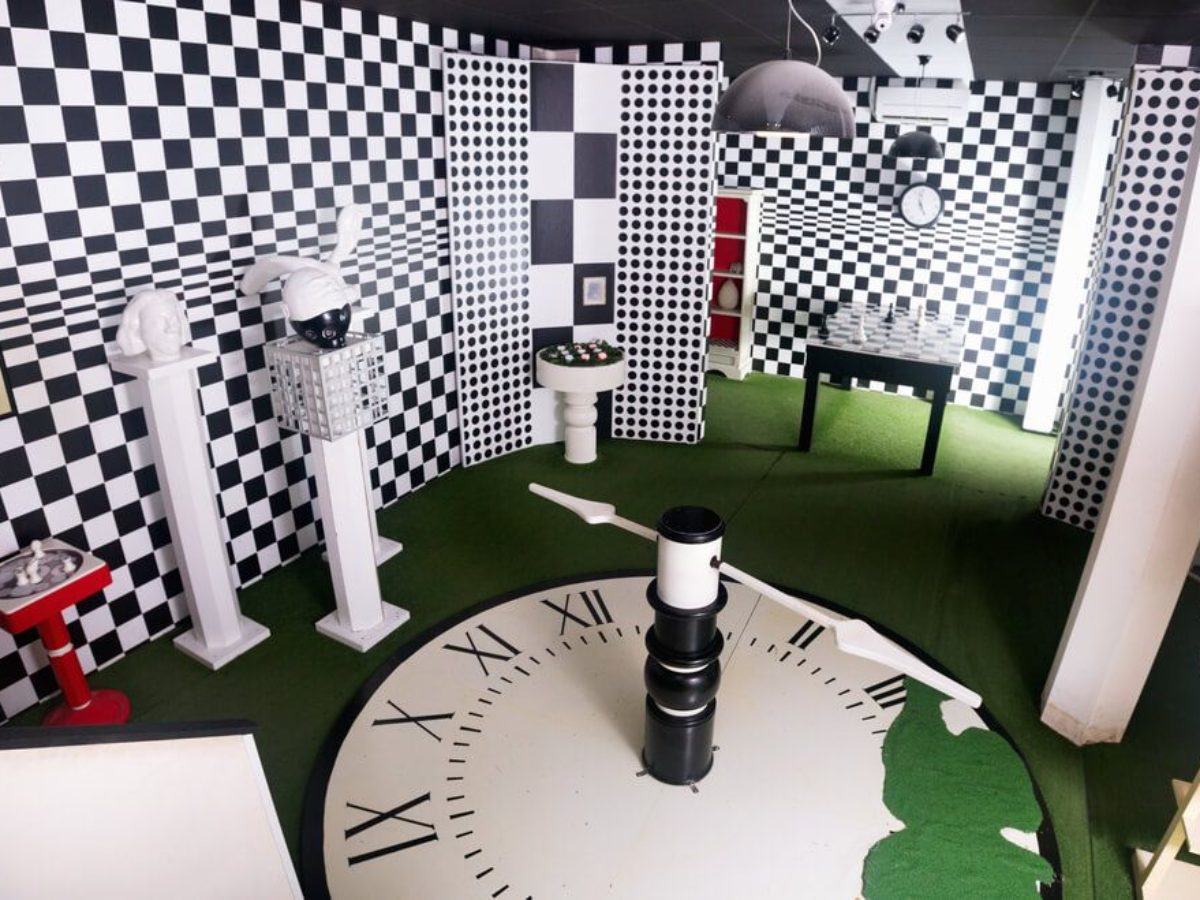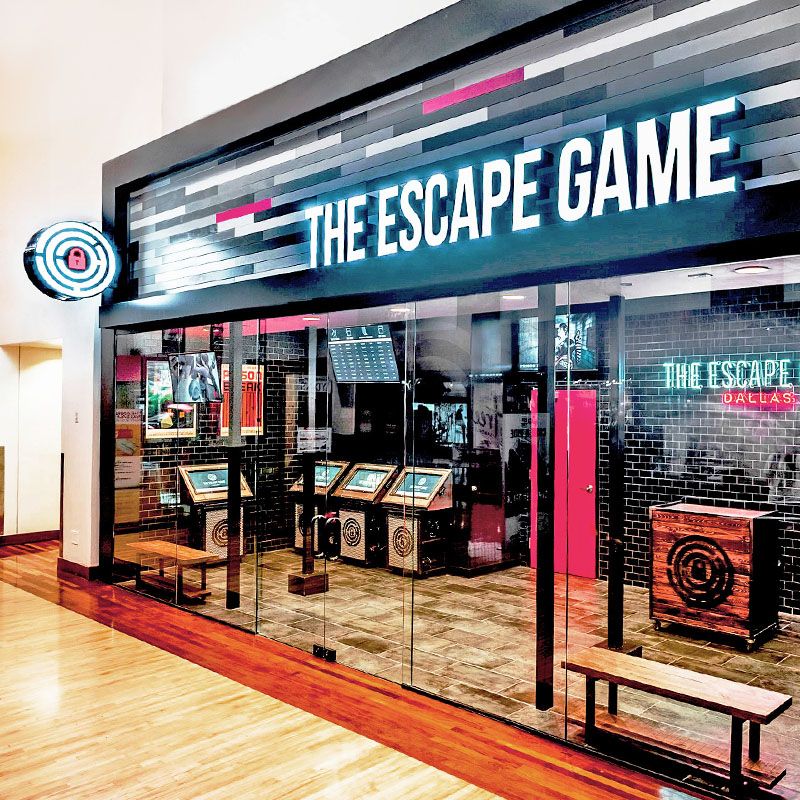Thrilling Escape Room in Minneapolis Mall of America-- Reserve Currently
Team Techniques: Exactly How to Collaborate Efficiently in an Escape Room
Groups have to actively pay attention to each member's insights, designate duties that line up with private toughness, and maintain routine check-ins to make sure focus and protect against redundancy. By promoting an atmosphere that values cohesion and flexibility, groups can considerably increase their performance and success prices.
Establish Clear Communication

To facilitate clear interaction, it is important to mark a main factor of get in touch with for information dissemination. This function entails summarizing searchings for and recommended methods to guarantee everyone continues to be on the exact same page. Additionally, adopting a methodical technique to conversations can protect against chaotic exchanges. For circumstances, quick, focused updates from each staff member can keep the team educated without overwhelming them with details.

Designate Duties Tactically
While clear communication sets the structure for reliable synergy, designating functions tactically makes sure that each employee's staminas are utilized effectively. In a retreat room scenario, the time-sensitive and complex nature of obstacles demands an efficient method to job delegation. By determining and leveraging specific expertises, teams can enhance their analytical abilities and improve overall performance.
Somebody with an eager eye for information could stand out in discovering hidden items, while a sensible thinker might be better suited to solving problems. This duty usually requires strong business and social abilities.
2nd, make sure that duties are adaptable and adaptable. As new obstacles emerge, the team should be able to pivot, reapportioning jobs as called for. This adaptability aids preserve momentum and avoids bottlenecks that might take place due to rigid duty jobs.
Ultimately, a calculated strategy to function job not just optimizes the strengths of each team participant yet also promotes a cohesive atmosphere, driving the team in the direction of an effective getaway.
Use Diverse Skills
Identifying and harnessing the varied abilities within your group can significantly boost your efficiency in a getaway room. Each group participant brings one-of-a-kind staminas to the table, and properly leveraging these capabilities can speed up analytical and boost overall effectiveness. For look here example, a group participant with strong analytical skills may stand out at understanding complicated codes or patterns, while another with eager observational capacities might rapidly spot surprise clues that could ignore.
Encourage group members to articulate their insights and concepts quickly, guaranteeing that all potential services are taken into consideration. Additionally, appointing jobs that align with each participant's toughness can prevent bottlenecks and make sure that development is continuous.
Furthermore, variety in abilities usually converts to variety in believing additional resources designs, which is important in a retreat area setting. While some difficulties may need rational reasoning and precision, others might take advantage of creative and side thinking. By recognizing and leveraging this diversity, teams can attend to a wider variety of difficulties more properly, therefore raising their possibilities of a successful retreat.
Manage Time Properly

Recognize noticeable challenges and separate jobs based on group participants' toughness, making sure that nobody is idle. This technique can aid maintain the team focused and protect against time from slipping away undetected.
Furthermore, prevent one-track mind. If a problem is taking as well long, turn staff member or relocate on to an additional challenge, returning later with fresh perspectives. Interaction is vital-- maintain everybody upgraded on solved puzzles and staying tasks to avoid redundant efforts.
Last but not least, make use of any kind of tips or clues sparingly however purposefully - best escape room. Knowing when to request for you could check here help can save valuable time. By adhering to these time monitoring principles, teams can significantly improve their chances of an effective and enjoyable getaway space experience
Debrief and Reflect
Representation is a crucial aspect of team development and improvement in the context of getaway spaces. Once the challenge is completed, whether effectively or otherwise, it is vital for the team to involve in a structured debriefing session. This procedure enables employee to analyze their performance, recognize strengths, and pinpoint areas for enhancement.
Begin the debrief by reviewing what worked out. Highlight specific instances of effective interaction, problem-solving, and partnership. Recognizing these positive behaviors reinforces them and urges their rep in future challenges.
Following, resolve the challenges ran into. Review minutes of complication, miscommunication, or ineffective strategies. Motivate an open and positive dialogue where team members can share their point of views without anxiety of objection. This promotes a culture of continual improvement and discovering.
Conclusion
In verdict, successful collaboration in an escape space is based upon clear interaction, tactical function tasks, the efficient application of diverse abilities, and competent time monitoring. By producing a natural and adaptive group atmosphere, the likelihood of efficiently addressing problems and attaining the goal of leaving the space is significantly improved.